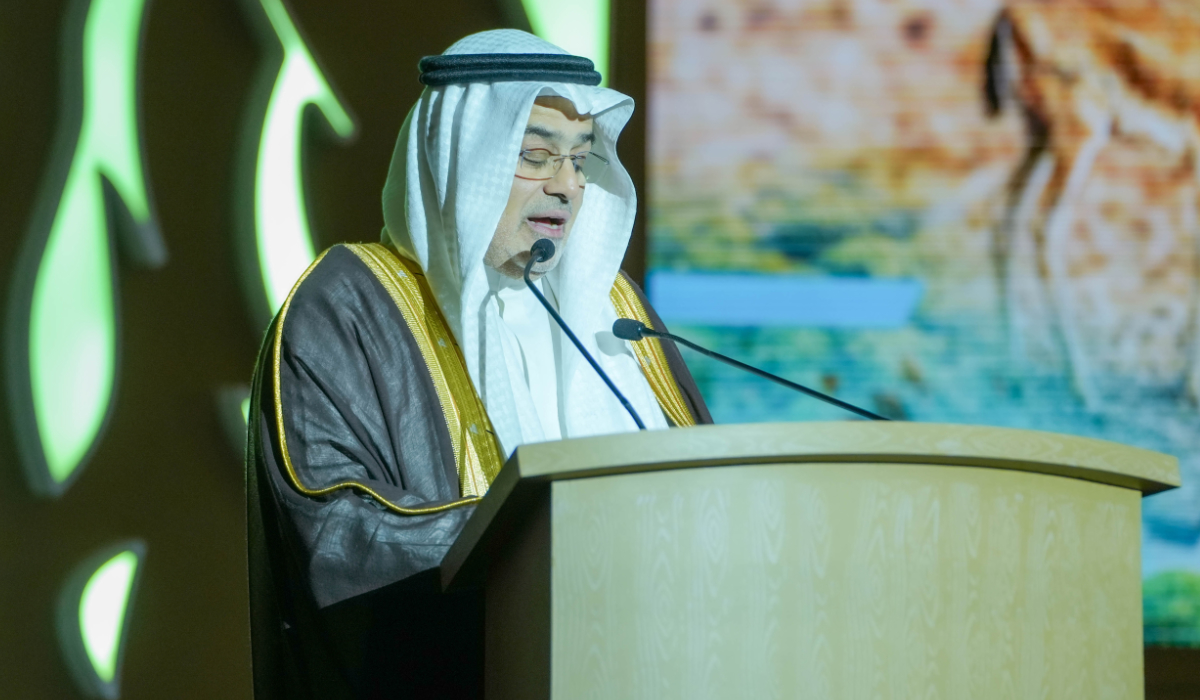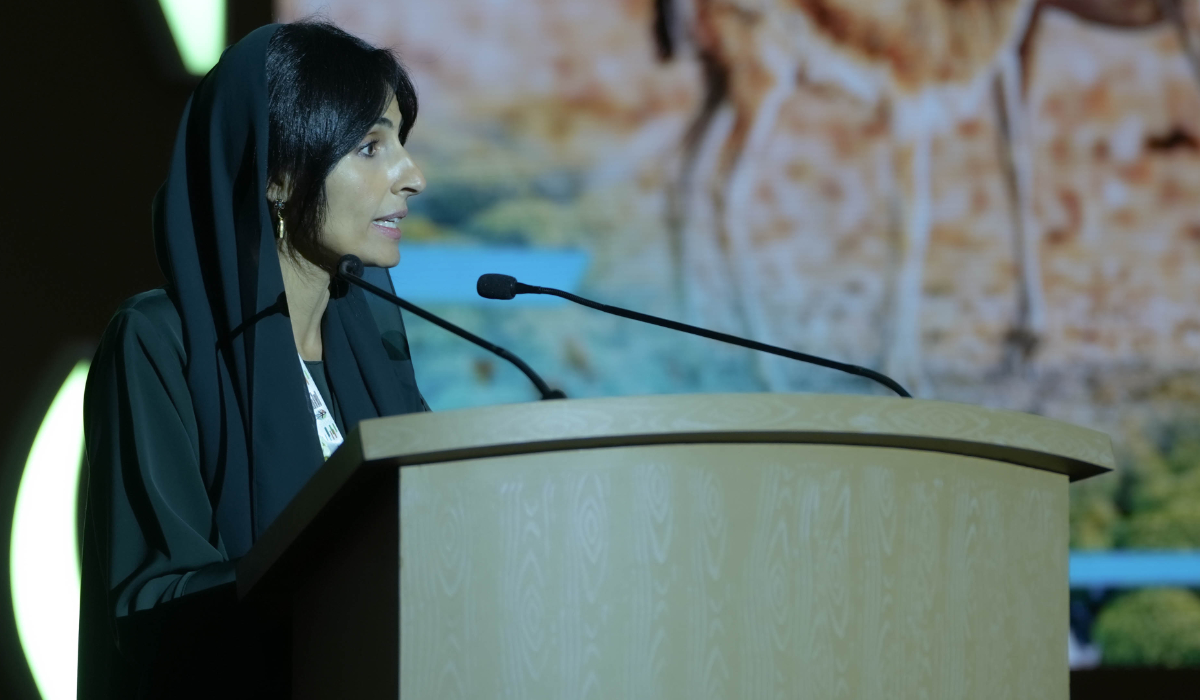RIYADH: Saudi Minister of Environment, Water and Agriculture Abdulrahman Al-Fadhli highlighted the Kingdom’s unprecedented environmental progress during the 10th Regional Forum of the International Union for Conservation of Nature for West Asia, held in Riyadh.
The event, hosted by Saudi Arabia through the National Center for Wildlife from Sept. 9-11, brought together more than 200 experts from West Asia and regional authorities.

Mohammad Qurban, CEO of the National Center for Wildlife. (AN photo by Jafer Alsaleh)
During a panel discussion, Al-Fadhli highlighted the Kingdom’s environmental milestones, both locally and globally, driven by a national vision that positions the environmental sector as key to sustainable development.
He noted the adoption of the National Environment Strategy as a guiding framework and highlighted various initiatives, including those launched during the G20 Riyadh Summit, aimed at conserving biodiversity, preventing land degradation and advancing global coral reef research.
HIGHLIGHT
The forum, held every four years, promotes communication and collaboration among West Asia members, providing a platform for exchanging ideas, addressing environmental challenges and developing conservation strategies.
The minister also spotlighted the Saudi Green Initiative, the Middle East Green Initiative and efforts to combat overgrazing, aiming to protect 30 percent of the Kingdom’s land and marine areas by 2030.
He emphasized the integrated institutional framework, which includes a national strategy, specialized centers for wildlife, meteorology, desertification control, waste management and vegetation cover, as well as an environmental fund.

Razan Al-Mubarak, president of the International Union for Conservation of Nature. (AN photo by Jafer Alsaleh)
Al-Fadhli concluded by underscoring the significance of hosting the IUCN forum and the upcoming COP16 in December, which aims to enhance international cooperation to combat land degradation and drought, providing environmental, economic and social benefits worldwide.
In an interview with Arab News, Mohammad Qurban, CEO of the National Center for Wildlife, discussed the significant role the Kingdom is playing in environmental health and pioneering green initiatives through sustainable strategies, both regionally and internationally.
“The collaboration between NCW and IUCN was not spontaneous. We have been planning for this conference for a long time. This is one of the major initiatives with various objectives. It brings us closer to other entities, offers an exchange of information and builds partnerships.”
Qurban highlighted the importance of global collaborations to reach a shared goal of restoring and protecting the environment in Saudi Arabia. “We are working to achieve equilibrium in nature.”
One of the outcomes Qurban hopes to achieve through the conference is to succeed in joint efforts with IUCN to protect the environment.
Additionally, one of the panelists in the discussions was Razan Al-Mubarak, president of the International Union for Conservation of Nature, who explained one of IUCN’s strategies to address rising temperatures by transitioning from traditional to renewable energy.
From her perspective, the transition to renewable energy has been slower than expected. Therefore, to accelerate the process, officials in the UAE announced that 60 percent of their energy mix will come from renewable sources by 2025.
The forum, held every four years, promotes communication and collaboration among West Asia members, providing a platform for exchanging ideas, addressing environmental challenges and developing conservation strategies.
The forum hosts workshops and seminars to enhance environmental awareness and train individuals on best practices, aiming to establish effective environmental policies.



























